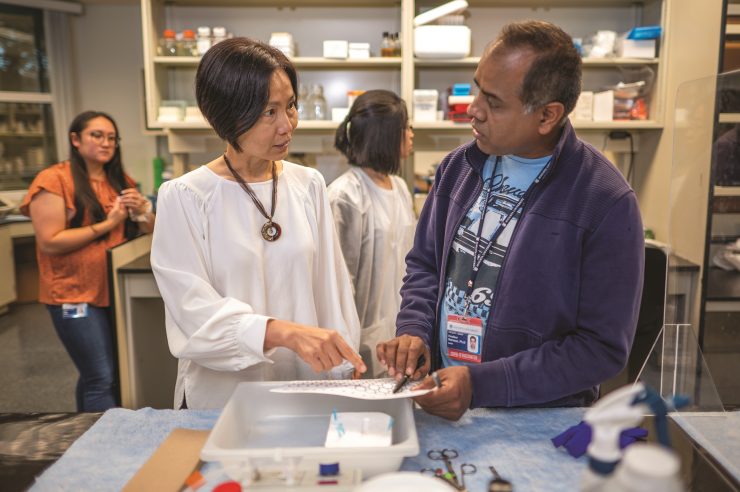 Clonidine is commonly used as a high blood pressure medication and for ADHD. It’s also already been studied in PTSD because clonidine works on adrenergic receptors in the brain, likely best known for their role in “fight or flight,” a heightened state of response that helps keep us safe.
Clonidine is commonly used as a high blood pressure medication and for ADHD. It’s also already been studied in PTSD because clonidine works on adrenergic receptors in the brain, likely best known for their role in “fight or flight,” a heightened state of response that helps keep us safe.
These receptors are thought to be activated in PTSD and to have a role in consolidating a traumatic memory. Clonidine’s sister drug guanfacine, which also activates these receptors, also has been studied in PTSD. Conflicting results from the clinical trials have clonidine, which has shown promise in PTSD, put aside along with guanfacine, which has not.
Scientists at the Medical College of Georgia say it’s time for another look at clonidine.
They have laboratory evidence that while the two drugs bind to the same receptors, they do different things there, says Qin Wang, MD, PhD, Georgia Research Alliance Eminent Scholar in Neuropharmacology and founding director of the Program for Alzheimer’s Therapeutics Discovery at MCG.
Their results published in the journal Molecular Psychiatry suggest that clonidine could provide immediate treatment to the significant number of people emerging from the current pandemic with PTSD, as well as from longer-established causes like wars and other violence.
Large-scale clinical trials of clonidine in PTSD are warranted, the scientists write. Their studies also indicate that other new therapies could be identified by looking at the impact on activation of a key protein called cofilin by existing drugs.
The scientists found clonidine interferes with cofilin’s exit by encouraging it to interact with the receptor which consequently interferes with the dendritic spine’s ability to resume a mushroom shape and retain the memory. Guanfacine, on the other hand, had no effect on this key player cofilin.
When a memory is recalled, like when you return to an intersection where you were involved in a horrific car wreck, the synapses that hold the memory of what happened there become temporarily unstable, or labile, before the memory restabilizes, or reconsolidates. This natural dynamic provides an opportunity to intervene in reconsolidation and so at least diminish the strength of a bad memory, Wang says and clonidine appears to be one way to do that.










